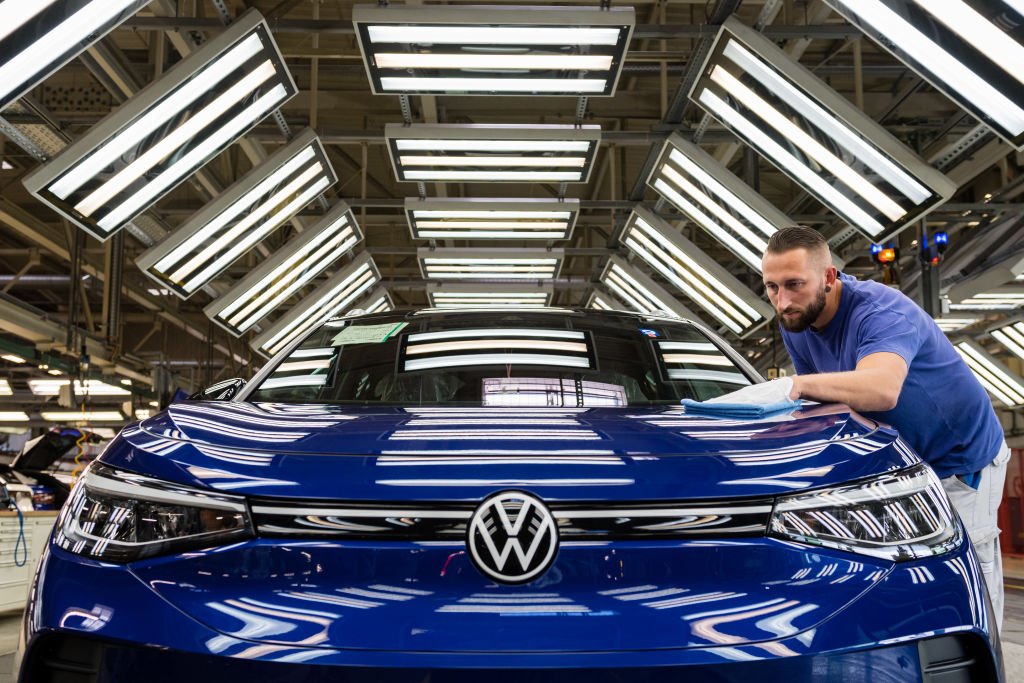The car maker Volkswagen (VW) was founded in 1937 and hasn’t ceased production in Germany in the 87 years since. Until now, that is. It is has been reported that the manufacturer may close multiple plants in its home country, as it attempts to transition away from fossil fuels.
This would mark a turning point for a nation known for its industry. Competition from China, high energy costs, and “a difficult economic environment” are named by company management as the main reasons why drastic steps might be unavoidable. But VW brought at least part of the current misery on itself by pursuing a strategy which relied too much on China as an export market while neglecting to lobby for better economic conditions in Germany.
Apparently, bosses at the company’s Wolfsburg headquarters were entirely oblivious to a well-honed approach by the Beijing regime. This tactic involved enticing Western manufacturers to come to China, then learning and replicating their technology in order to build superior and cheaper products. This has proved successful in the areas of PV technology and electric vehicles, and similar may now happen with semiconductors as well.
The outlook for German — and European — car manufacturers is indeed worrisome. As Bloomberg observes: “After years of ignoring overcapacity and slumping competitiveness, the German auto giant’s moves are likely to kick off a broader reckoning in the industry. The reasons are clear: Europe’s efforts to compete with Chinese rivals and Tesla Inc. in electric cars are faltering.”
These problems did not just appear out of nowhere. Rather, they are the consequence of a German and broader continental policy approach, according to which a country can regulate itself into a world-class economy while neglecting innovation and competition. The same Bloomberg piece expresses confusion at the decline of electric car sales in Europe, stating that “the sluggish uptake has put the EV market in reverse this year, at a time of an expected steep rise.”
This expected steep rise, which never materialised, was supposed to be the result of regulatory steps forcing consumers to switch to electric vehicles, such as banning gasoline cars. Unfortunately, if not incentivised by generous government subsidies, consumers are refusing to comply, instead deciding to keep their internal combustion engine cars for increasingly longer periods of time. Unsurprisingly, once Germany ended its EV subsidy programme, sales collapsed.
We are now seeing the consequences of what can happen if a government focuses excessively on accomplishing ideological goals, no matter the costs, and if companies structure their production according to these targets rather than consumer preferences. As this reality sets in, a growing number of companies besides VW are considering abandoning Germany. A poll by Germany’s Chamber of Commerce and Industry of around 3,300 companies revealed that 37% were considering cutting production or moving abroad. This marked an increase from 31% last year and 16% in 2022. According to the survey, 45% of energy-intensive industrial firms were considering significantly reducing their output or relocating.
As things currently stand, VW’s retreat might be remarkable, but it will not be the last of its kind. If the industry continues in this vein, we may be witnessing the beginning of the end of European car manufacturing.











Join the discussion
Join like minded readers that support our journalism by becoming a paid subscriber
To join the discussion in the comments, become a paid subscriber.
Join like minded readers that support our journalism, read unlimited articles and enjoy other subscriber-only benefits.
Subscribe